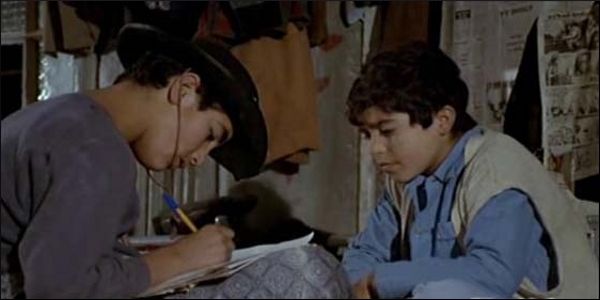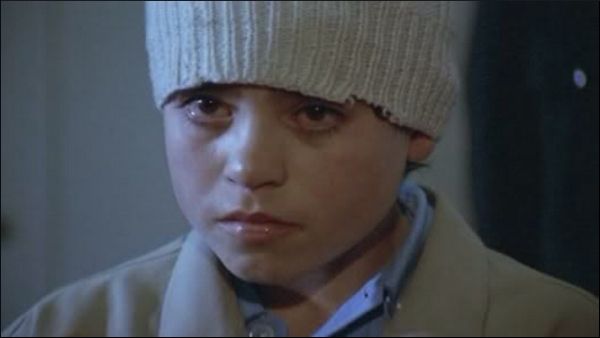Duvar tells the story of teenage Turkish prisoners after the 1980 coup. Their hopes, their fights, their dreams, and their relationships are the centre of the movie. We see how they shape a small community: they have cooks, workers, and cleaners, and everyone has a job. Because around 20 or 30 teenage prisoners live in each cell, they need to organize their social life to be peaceful.
The guards are very cruel to them. They beat and yell at the young prisoners, and even sexually abuse the little ones, who are afraid to speak out because they will be beaten up again if they do so. Events in this movie happen after the military coup, and we see soldiers everywhere: in the prison and in front of it, even doing what the prison guards are supposed to do.
"Duvar tells the story of teenage Turkish prisoners after the 1980 coup. Their hopes, their fights, their dreams, and their relationships are the centre of the movie."
The small cells are filled with people. There is no place to walk and the prisoners are always surrounded by the smoke of cigarettes. Most of the boys don’t know how to read or write, and when they want to send letters to their families they have to ask for help. But these services are not free, and they have to exchange food or money. Here, the movie points out how uneducated these kids are, thanks to Turkey’s bad education system at the time.

Very harsh language is featured in this film. The most commonly used words are “ulan” and “lan,” which are actually identical terms that have no meaning, but are used at the beginning or at the end of a sentence to show that the speaker is angry or unhappy about something. One of the words the guards use against the children is “hıyar,” which literally means “cucumber” but, when referring to a person, means “idiot.” Another slang phrase is “Eşek oğlu eşek” (The donkey son of a donkey father), which is a slightly lighter version of “SOB,” sometimes used instead of “stupid.” Almost everyone smokes in the prison, and in Turkish, “cigarette” is “sigara,” but to make it sound friendlier people say “cigara.” Elsewhere, the deputy chief of the prison asks a child if he is Muslim, and after the child replies that he is, the deputy chief asks him to prove it by reciting a prayer that every Muslim should know in Arabic. But the child doesn’t remember it in its entirety and so is beaten brutally by the guards. After the 1980 coup, the army started to make the country more religious, and director Yılmaz Güney shows how cruel religious people could become during that period, simply because somebody didn’t know an Arabic prayer.
"After he made Duvar, Yılmaz Güney said, “I’ve been in 25 different prisons just because of my thoughts, and this movie shows what I’ve experienced.”
Yılmaz Güney, the writer, director, and producer of Duvar, was a very famous actor during the 70s. But, half-way through that decade, he started to direct movies instead. His films were mostly political, as he was a leftist activist during the 70s and spent lots of time in jail. After he made Duvar, he said, “I’ve been in 25 different prisons just because of my thoughts, and this movie shows what I’ve experienced.” He filmed it in France because he was denationalized by the military government, and the movie was banned for 17 years in Turkey. Duvar was his last film, since he died in 1984.





